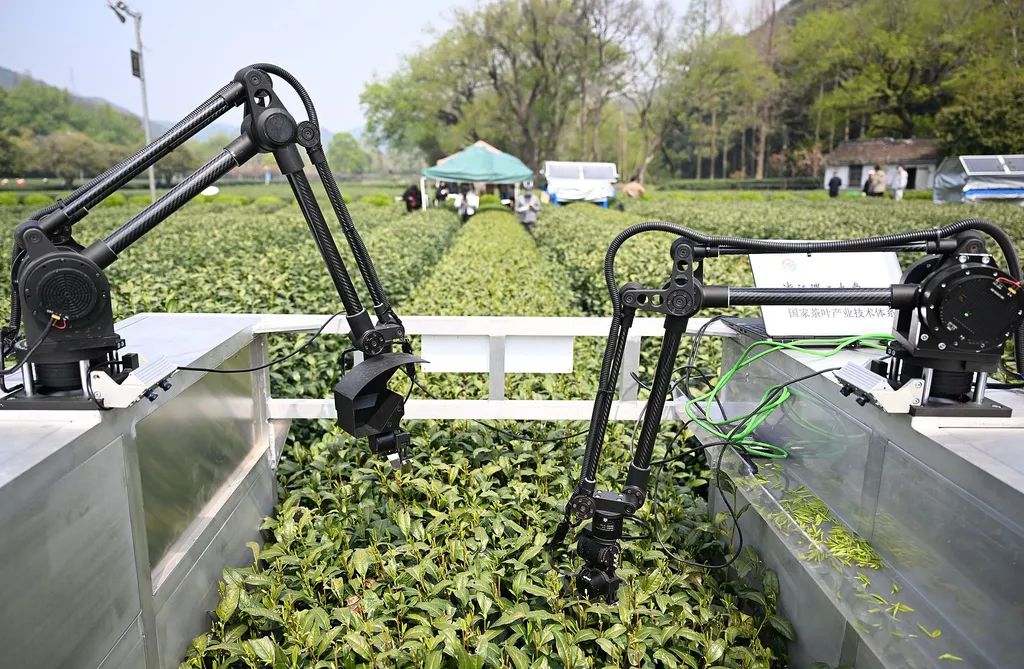In the heart of Jiangsu, China, researchers are harnessing the power of artificial intelligence to revolutionize the agriculture sector, aiming to transform traditional farming into a data-driven, precision-based model. A recent study published in the journal *Agriculture* delves into the current research status and future trends of AI in smart agriculture, offering a comprehensive overview of how this technology is reshaping the industry.
The study, led by Chuang Ge from the School of Electrical and Information Engineering at Jiangsu University, explores the entire agricultural production process, from planting to harvesting. It highlights the potential of AI technologies such as machine learning, deep learning, computer vision, and the Internet of Things (IoT) to enhance various aspects of agriculture.
One of the key areas of focus is the use of AI for intelligent perception and control. “AI technologies can significantly improve the efficiency and accuracy of agricultural operations,” Ge explains. “For instance, computer vision systems can identify pests and diseases with high precision, enabling timely and targeted interventions.”
The study also emphasizes the role of AI in agricultural machinery and devices. Predictive maintenance, powered by AI, can reduce downtime and maintenance costs, while agricultural robots equipped with AI can perform tasks such as planting, weeding, and harvesting with greater precision and efficiency.
The commercial impacts of these advancements are substantial. AI-driven smart agriculture promises to lower resource consumption, enhance product safety and quality, and increase yields. This shift towards precision agriculture can lead to more sustainable and profitable farming practices, benefiting both farmers and consumers.
However, the study also acknowledges the challenges that lie ahead. The complex agricultural environment often results in multi-source, heterogeneous, and low-quality data, which can hinder the performance of AI models. Additionally, issues such as poor generalization capability, low interpretability, and insufficient real-time performance need to be addressed.
Looking to the future, the researchers suggest several promising directions for further study. These include lightweight network models, transfer learning, embodied intelligent agricultural robots, multimodal perception technologies, and large language models tailored for agriculture.
As the agriculture sector continues to evolve, the integration of AI technologies is set to play a pivotal role. The insights provided by this study offer a valuable reference for practitioners and policymakers, guiding the development of smart agriculture and paving the way for a more sustainable and efficient future.
With the rapid advancement of AI technologies, the agriculture sector stands on the brink of a transformative era. The research led by Chuang Ge from Jiangsu University not only highlights the current applications and potential benefits of AI in agriculture but also underscores the need for continued innovation and collaboration to overcome existing challenges. As we move forward, the synergy between AI and agriculture will undoubtedly shape the future of farming, driving towards a more precise, sustainable, and productive agricultural landscape.

